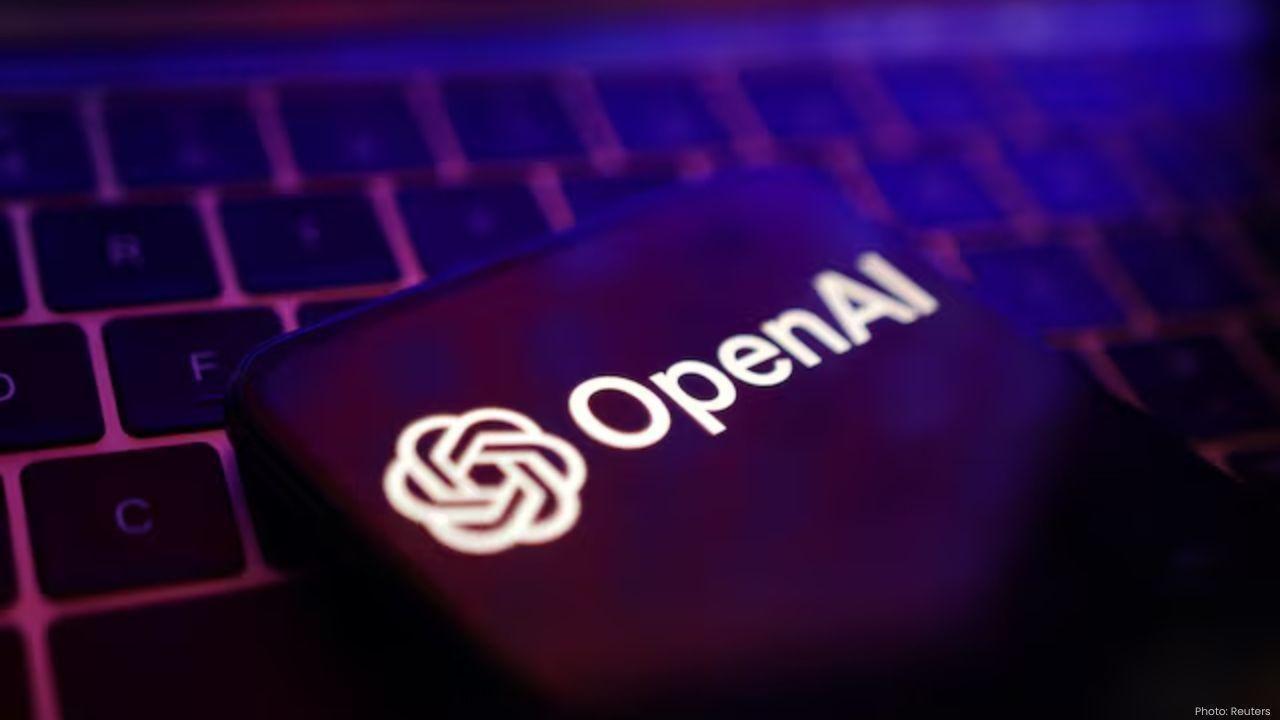
Post by : Bianca Suleiman
OpenAI is preparing to make its very first in-house chip next year, in partnership with U.S. semiconductor company Broadcom. This chip will be used only within OpenAI and will not be sold to other companies. The project is part of OpenAI’s plan to strengthen its computing systems and reduce its dependence on external chip suppliers.
Why OpenAI is Making Its Own Chip
AI systems, including tools like ChatGPT, need enormous computing power to work efficiently. By creating its own chip, OpenAI can make its AI systems run faster and more efficiently. The custom chip will also help OpenAI save money, manage high demand for AI services, and maintain control over its technology.
Previous Efforts to Reduce Chip Dependence
OpenAI has already been trying to reduce reliance on Nvidia chips, which are commonly used for AI computing. Last year, the company worked with Broadcom and Taiwan Semiconductor Manufacturing Company (TSMC) to design a chip that could work alongside AMD and Nvidia hardware. This approach gives OpenAI flexibility and ensures it can meet growing demands for its AI models.
Chips for Internal Use Only
OpenAI has no plans to sell the chip to other companies. It will be used internally to run AI models, similar to strategies followed by other tech giants such as Google, Amazon, and Meta. These companies build custom chips to improve efficiency and reduce dependence on outside suppliers.
Broadcom’s Role in the Project
Broadcom will provide support and expertise to produce the chip. The company expects its AI-related revenue to grow significantly in 2026, and it has already received over $10 billion in AI infrastructure orders. OpenAI’s chip project fits into this expanding market for AI technology.
Growing Demand for AI Computing Power
As AI models become more popular, the need for fast and powerful computing grows. Large AI models process massive amounts of data, which requires high-performance chips. By building its own chip, OpenAI can ensure its systems run smoothly and handle large-scale workloads without delays.
Collaboration with TSMC
OpenAI is finalizing the design of its first chip and plans to send it to TSMC for production. TSMC is a leading chip manufacturer known for producing advanced semiconductor technology. Partnering with TSMC ensures the chip will meet high standards of performance and quality.
Reducing Dependence on Nvidia
Nvidia is a major supplier of AI chips. OpenAI’s new chip will help reduce reliance on Nvidia, giving the company more control over costs and technology. This strategy also ensures continuity if there are supply chain issues or rising prices, which is a common approach among large tech firms.
Industry Trend: Custom Chips for AI
OpenAI is not the only company building custom chips. Google has its TPU chips, Amazon has AI processors for AWS, and Meta has chips for AI research. Companies create these chips to handle AI workloads more efficiently, save costs, and improve system performance. OpenAI’s move follows this industry trend.
Benefits of OpenAI’s Chip
The new chip will improve the speed and efficiency of OpenAI’s AI models. It may also reduce costs for running large-scale AI systems. Custom chips allow OpenAI to innovate faster and remain competitive in the AI field. Controlling chip design internally ensures that the hardware is optimized for OpenAI’s specific workloads.
Future Plans
The first chip is only the beginning. OpenAI plans to expand its AI infrastructure with its own hardware. By doing so, it can continue developing advanced AI models while maintaining high performance and reliability. Partnerships with Broadcom and TSMC show OpenAI’s commitment to building strong technology foundations.
Implications for the Industry
OpenAI’s chip reflects a wider trend in technology. Many companies are investing in in-house chips to gain more control over AI computing, reduce costs, and improve efficiency. This move may encourage other AI companies to build custom chips as AI models become larger and more complex.
OpenAI’s decision to create its first custom chip with Broadcom is a major step in its AI journey. The chip will improve performance, reduce dependence on Nvidia, and help the company manage growing AI workloads. As demand for high-performance computing grows worldwide, OpenAI’s in-house chip strategy could set a new standard for AI hardware development.










Mattel Revives Masters of the Universe Action Figures Ahead of Film Launch
Mattel is reintroducing Masters of the Universe figures in line with its upcoming film, tapping into

China Executes 11 Members of Criminal Clan Linked to Myanmar Scam
China has executed 11 criminals associated with the Ming family, known for major scams and human tra

US Issues Alarm to Iran as Military Forces Deploy in Gulf Region
With a significant military presence in the Gulf, Trump urges Iran to negotiate a nuclear deal or fa

Copper Prices Reach Unprecedented Highs Amid Geopolitical Turmoil
Copper prices soar to all-time highs as geopolitical tensions and a weakening dollar boost investor

New Zealand Secures First Win Against India, Triumph by 50 Runs
New Zealand won the 4th T20I against India by 50 runs in Vizag. Despite Dube's impressive 65, India

BTS Tour Sparks Global Demand: Mexico Appeals for Additional Shows
BTS' comeback tour creates immense demand in Mexico, prompting President Sheinbaum to urge more conc